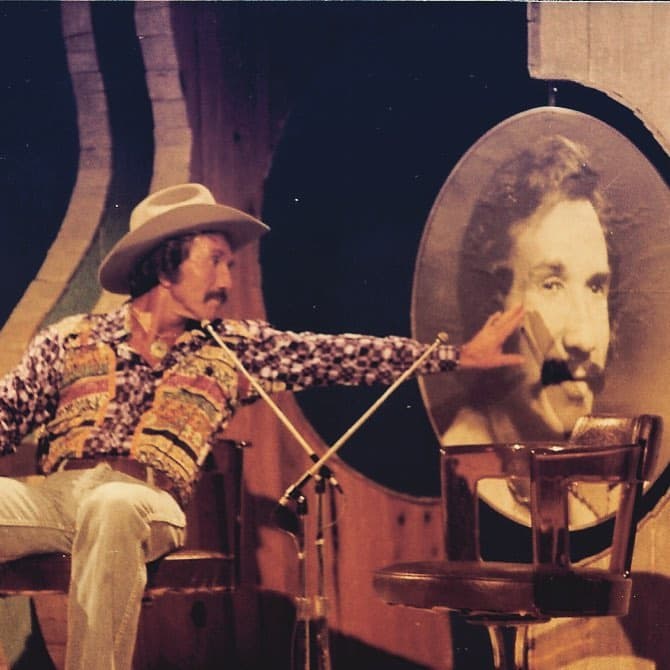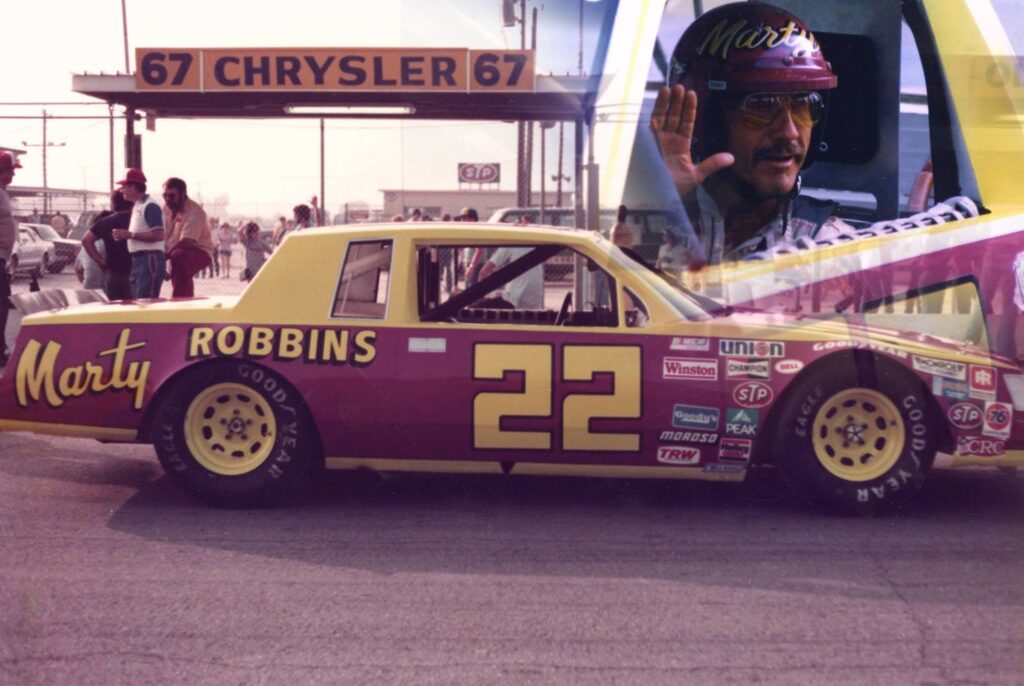
In the flowing stream of American country music, Marty Robbins is always remembered as a truly unique name. He was not only a singer, songwriter, and masterful storyteller through timeless cowboy ballads and love songs, but also a man who carried within himself a boundless vitality and an endless passion for both music and speed. Throughout his career, he captured the hearts of millions with his tender voice, simple yet captivating presence, and unforgettable songs. But what earned him even greater admiration was his extraordinary resilience: even as his fragile heart failed him time and again, Marty Robbins rose with courage—returning to the stage, returning to the racetrack, and living fully until his very last moment.
A Storyteller of the Wild West
Marty Robbins (1925–1982) was born in Glendale, Arizona, into a poor family during the Great Depression. His difficult childhood did not break him; instead, it fueled his passion for singing and storytelling. While serving in the Pacific during World War II, Robbins taught himself to play the guitar to pass the time. That very guitar and his voice would later become the tools that carried him to audiences everywhere.
From the 1950s through the 1970s, Marty Robbins released a string of unforgettable hits: “El Paso,” “Big Iron,” “A White Sport Coat (And a Pink Carnation),” “Devil Woman,” “Don’t Worry”… He could deliver tender, heartfelt country love songs, yet also paint grand, dramatic portraits of the Wild West with his captivating storytelling voice. With El Paso, Robbins not only won a Grammy but also secured his place in country music history as one of its greatest “musical storytellers.”
Beyond music, Robbins had a burning passion for speed. He competed in NASCAR as a semi-professional driver, entering 35 Grand National races and finishing in the Top 10 multiple times. The image of a star who could both command the stage and race on the track made Marty Robbins stand out—multi-talented, daring, and more compelling than ever.

The Fateful Heart Attacks
Behind the stage lights and the roar of the racetrack, Marty Robbins had to face a formidable enemy: heart disease.
The First Heart Attack (1969): At just 44 years old, at the very peak of his career, Robbins collapsed from a sudden heart attack. At that time, coronary bypass surgery was still in its infancy, almost considered an “experimental procedure.” Yet on January 27, 1970, Marty courageously stepped onto the operating table and became one of the first patients to undergo a triple bypass surgery. The operation was more successful than anyone had hoped.
A Triumphant Return (1970): Only a few months after leaving the hospital, Marty Robbins astonished the public by returning to accept the “Man of the Decade” award from the Country Music Association. That October, he was once again behind the wheel of a NASCAR race car, speeding down the track with a heart that had just been “patched up.” His spirit inspired admiration from both the medical community and his fans alike.
The Second Heart Attack (1981): More than a decade later, Marty’s heart struck again. In 1981, he suffered another heart attack—this time less severe and without the need for major surgery. Still, with his already weakened condition, every operation and every attack carved deeper scars into his fragile body. Even so, Marty refused to surrender, holding fast to the stage and the racetrack, never backing down.
The Third Heart Attack (1982): On December 2, 1982, Marty Robbins suffered the most serious heart attack of his life. He was rushed to St. Thomas Hospital in Nashville, where doctors performed an eight-hour quadruple bypass surgery. During the operation, surgeons not only had to repair three old grafts but also create a new bypass for his struggling heart. After surgery, Marty was kept alive with a heart pump, ventilator, and dialysis. He fought on with every ounce of fragile strength he had left.
A Courageous Heart Until the Very End
After his final surgery, Marty Robbins’s condition became gravely critical. That heart—though it had fought with resilience for so many years—could no longer endure. Six days after the operation, on December 8, 1982, he drew his last breath in Nashville, Tennessee, leaving behind an irreplaceable void in the hearts of his fans.
Yet, what people remember most is not the moment Marty fell, but the countless times he rose against fate. Through every heart attack, every surgery, he returned to the stage with a soulful voice and to the racetrack with unyielding determination. In him, the world saw not only an artist, but also a shining example of perseverance and the strength to live with courage.
The Legacy Left Behind
In the very year of his passing (1982), Marty Robbins was inducted into the Country Music Hall of Fame—a well-deserved honor for his everlasting contributions. His final song, Some Memories Just Won’t Die, felt almost prophetic: a reminder that the memory of him would never fade.
Fans of Marty Robbins remember not only a troubadour of the Wild West and a speed-loving racer, but also a flesh-and-blood man—someone who lived, loved, sang, and fought until his very last breath.
Though his heart may have broken many times from illness, in the hearts of music lovers Marty Robbins lives on—whole, heroic, and immortal.